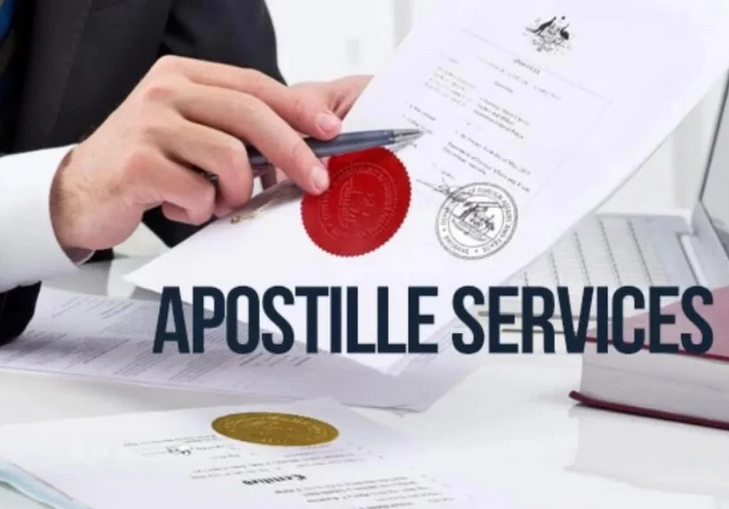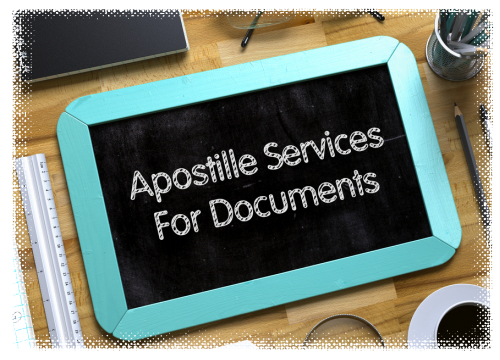Recognizing the Value of Apostille Qualification and Why It Is Necessary for Legal Documents
Among the various mechanisms available for this purpose, apostille certification stands out as a structured and universally identified approach. Understanding the ins and outs and implications of apostille accreditation on legal files is crucial for people and organizations engaging in cross-border activities.
The Definition of Apostille Accreditation
Apostille certification is a customized kind of authentication that confirms the authenticity of a legal document for global usage. This certification is critical for ensuring that files coming from one nation are recognized as legitimate in one more, simplifying the process of cross-border purchases, legal process, or personal matters like marriage or adoption. The Hague Apostille Convention of 1961 developed the structure for this streamlined certification procedure among taking part countries.
To get an apostille certification, the marked authority in the paper's nation of origin have to confirm the file's credibility before attaching the apostille. When affixed, the apostille ensures that the document will certainly be approved as valid in any kind of various other nation that is component of the Apostille Convention, without the requirement for additional accreditation.
Advantages of Apostille for Legal Records
The usage of apostille certification enhances the international acknowledgment procedure for lawful papers, offering substantial benefits in promoting cross-border involvements and lawful formalities. One key benefit of apostille accreditation is that it makes certain the credibility of the record in inquiry. By attaching an apostille certificate, the paper ends up being conveniently accepted in countries that become part of the Hague Apostille Convention, eliminating the need for further verification. This not only conserves time but also minimizes the bureaucratic difficulties that frequently accompany global record confirmation procedures.
In addition, apostille qualification enhances the total efficiency of legal procedures by simplifying the procedure of confirming the authenticity of a file. Overall, the benefits of apostille certification for lawful records are important in promoting smoother international interactions and ensuring compliance with lawful needs throughout borders.
Apostille Vs. Legalization: Trick Distinctions
When distinguishing between the procedures of apostille qualification and legalisation for lawful documents, it is essential to understand the crucial distinctions in their particular authentication approaches. An apostille is a streamlined kind of legalization that is approved among nations that are part of the Hague Apostille Convention.
This process can be a lot more taxing and costly contrasted to getting an apostille. The selection between apostille qualification and legalization depends on the certain needs of the country where the record will be utilized.
Countries Approving Apostille Certification

While the Hague Apostille Convention has considerably streamlined the official site procedure of cross-border document verification, there are still countries that are not party to the convention - Houston TX Apostille. Because of this, files destined for these countries might require traditional legalization treatments via embassies or consular offices. It is essential for people and companies taking care of international purchases to confirm the particular needs of the location nation to make certain compliance with their lawful criteria
Steps to Obtain Apostille for Papers
To get an apostille for your files, you need to begin by recognizing the suitable providing authority in your country. The providing authority is typically the government department in charge of verifying papers, such as the Assistant of State's workplace. Once you have actually recognized the correct authority, the following action is to make sure that your file meets all the requirements for apostille accreditation. These requirements usually consist of having a signature from a recognized official, such as a notary public, and any type of needed supporting records.
After confirming that your paper fulfills the requirements, you will need to submit an apostille application provided by the providing authority. This kind will certainly require details concerning the record being authenticated and the country where it will certainly be utilized. Together with the completed application Learn More Here form, you will likely require to submit the original file, a copy of your recognition, and any kind of suitable costs.

Verdict
To conclude, apostille accreditation plays a critical role in making sure the credibility and legitimacy of legal records for global usage (Houston TX Apostille). Recognizing the significance of apostille certification is important for people and organizations browsing the complexities of cross-border deals and legal issues. By acquiring apostille accreditation, celebrations can improve the process of paper confirmation and authentication, eventually saving time and resources in the worldwide arena
To acquire an get redirected here apostille qualification, the marked authority in the document's nation of origin need to verify the paper's credibility prior to attaching the apostille. Once connected, the apostille ensures that the record will be approved as valid in any kind of various other nation that is part of the Apostille Convention, without the need for more accreditation.
By attaching an apostille certificate, the record ends up being conveniently accepted in countries that are part of the Hague Apostille Convention, removing the demand for more verification.Distinguishing between apostille qualification and legalization exposes the varying acceptance of these verification approaches throughout different nations, with some nations especially acknowledging and sticking to the apostille process. The apostille accreditation is extensively accepted amongst nations that are part of the Hague Apostille Convention, which currently has 118 participant states.